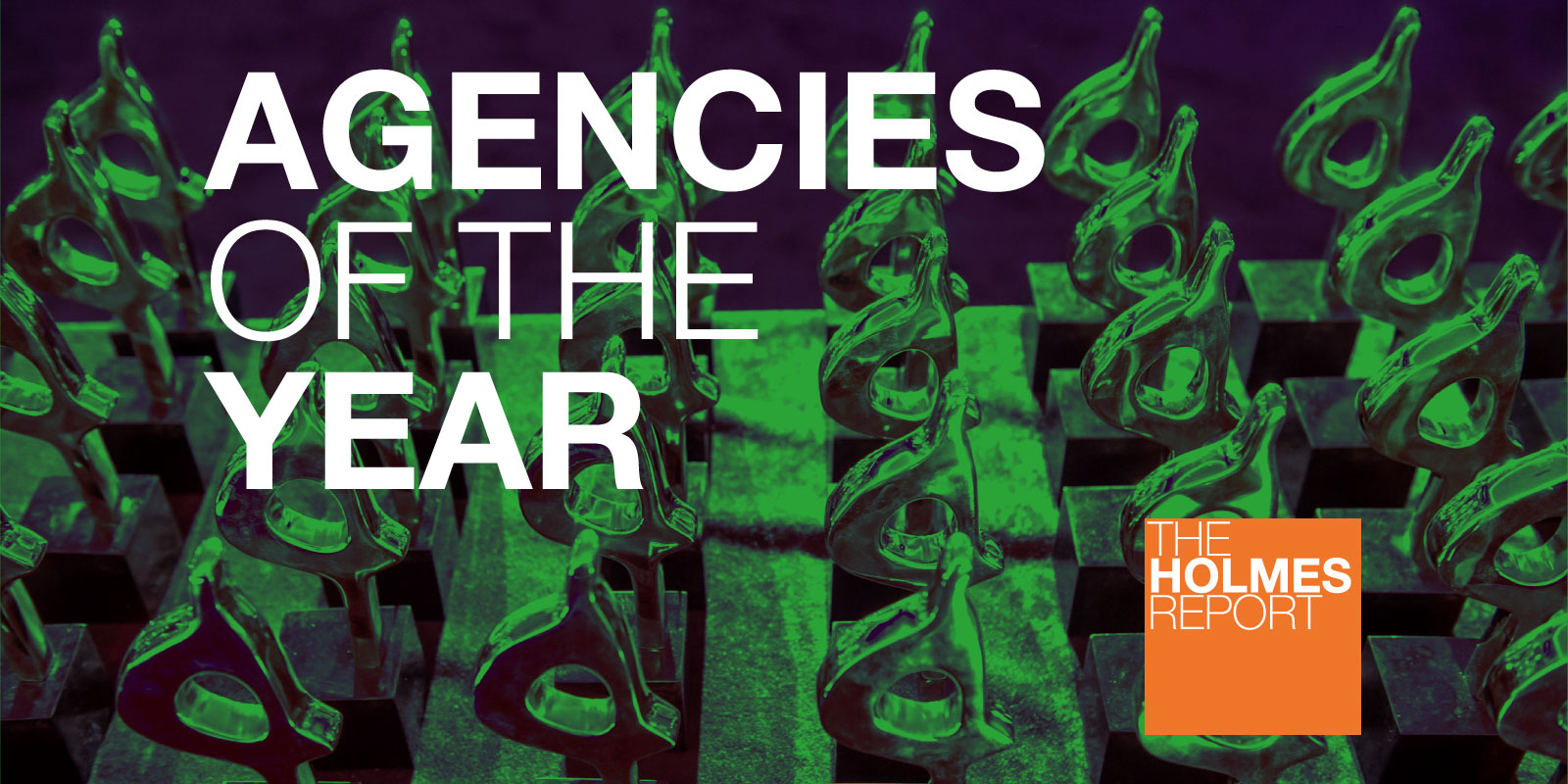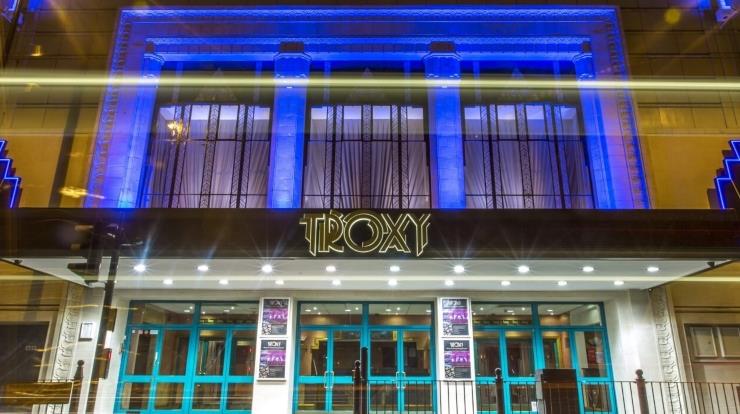
 Podcasts
PodcastsCatch the latest PR news & updates with PRovoke Media's PR Podcasts. Lifting the lid on key industry stories & trends, join our listeners of PR podcasts today.
 Videos
VideosLatest video interviews and campaigns from PRovoke Media, previously known as the Holmes Report.
Long-form journalism that analyzes the issues, challenges and opportunities facing the business and practice of PR.
 Profiles & Interviews
Profiles & InterviewsExplore PR profiles and interviews with leaders from the marketing and PR worlds.
 Crisis Review
Crisis ReviewPR Crisis & Business Crisis review. PRovoke Media's annual analysis of the top reputation crises to rock the corporate sector. Read on here.
 Coronavirus
CoronavirusPRovoke Media's coverage of the Covid-19 crisis, focusing on corporate communication, public affairs & PR industry fallout.
 Trend Forecasts
Trend ForecastsPRovoke Media's PR Trends round up. PRovoke Media's annual forecast of PR trends and news that will impact the PR world in the year ahead...
 Social & Digital
Social & DigitalDedicated to exploring the new frontiers of PR as it dives deeper into social media, content and analytics.
 Technology
TechnologyOur coverage of key technology PR trends and challenges from around the world of digital communications.
 Consumer
ConsumerFrom brand marketing to conscious consumerism, coverage of key marketing and PR trends worldwide.
 Employee Engagement
Employee EngagementPRovoke Media's coverage, analysis and news around the rapidly-shifting area of employee engagement and internal communications.
 Sports Marketing
Sports Marketing Sports PR news, diversity & inclusion trends, views and analysis from PRovoke Media. Subscribe today for the very latest in the world of sports communications.
 Global PR Agency Rankings
Global PR Agency RankingsPRovoke Media's definitive global benchmark of global PR agency size and growth.
Enter PRovoke Media's 2024 Global 250 Agency Ranking and/or our Agencies of the Year competitions now.
 Agencies of the Year
Agencies of the YearPRovoke Media's annual selections for PR Agencies of the Year, across all of the world's major markets.
 Innovator 25
Innovator 25PRovoke Media profiles marcomms innovators from across North America, EMEA and Asia-Pac.
 Creativity in PR
Creativity in PRIn-depth annual research into the PR industry's efforts to raise creative standards.
 Asia-Pacific Communication Index
Asia-Pacific Communication IndexAPACD/Ruder Finn annual study of Asia-Pacific in-house communications professionals.
 SABRE Awards
SABRE AwardsThe world's biggest PR awards programme, dedicated to benchmarking the best PR work from across the globe.
 PRovokeSummit Global
PRovokeSummit GlobalThe biggest PR conference of the year, a high-level forum designed to address the critical issues that matter most.
 PRovoke Media Regional Series
PRovoke Media Regional SeriesA global network of conferences that explore the innovation and disruption that is redefining public relations.
 Agencies of the Year
Agencies of the YearUnrivalled insight into the world's best PR agencies, across specialist and geographic categories.
 Roundtables
RoundtablesOur Roundtables bring together in-house comms leaders with PR firms to examine the future of communications.
 Agency Playbook
Agency PlaybookThe PR industry’s most comprehensive listing of firms from every region and specialty
.jpg) All Jobs
All JobsFind the latest global PR and communications jobs from PRovoke Media. From internships to account executives or directors. See all our PR jobs here.
PRovoke Media's editorial series published in collaboration with partners.

Our 2017 EMEA PR Consultancies of the Year are the result of an exhaustive research process involving more than 200 submissions and face-to-face meetings with the best PR firms across Europe, the Middle East and Africa.
Winners were unveiled at the EMEA SABRE Awards in London on 23 May. Analysis of all Finalists across 21 categories can be accessed via the navigation menu to the right or here.
Last year’s Technology Consultancy of the Year submitted another standout year in 2016, ensuring that memories of its 2011 nadir (when the UK’s oldest specialist tech consultancy was down to 14 people and £1.6m in revenue) are firmly in the rearview mirror. Indeed, Louie St Claire and his leadership team (Ellie Bennett, Pete Marcus, Phil Szomszor and Gareth Clark) have revolutionised the firm to the extent that 29% growth to £4m is now seen as business as usual. Of course, Harvard’s business today certainly cannot count as commonplace among its tech rivals, having chosen to restructure its offering last year from a position of strength, creating three core division (PR/AR, digital engagement and marketing) that underscore its diversification across the full spectrum of technology marketing budgets, supplemented by a credible planning capability, along with demand generation, account based marketing and sales enablement capabilities, with the marketing services practice growing from 4 to 18 people.
New business remained in fine fettle, with the firm adding such clients as Propel/Disney, Lloyd's of London, Linn, Dun & Bradstreet, Azimo, Hired, Stuart, Mimecast, Habito to join an existing client roster that features Fujitsu, Ricoh, Vodafone Cisco, Arbor Networks, Sennheiser, Digital Catapult, Lycamobile, Salmon and Zappar
The firm's work reflects an impressive focus on integration, via a full-service offering that extends beyond PR and digital into such areas as advertising and direct marketing, all centred on the idea of being audience engagement experts for the technology sector. There was impressive campaign work Fujitsu (‘A New Pace of Change’); Salmon (‘Black Friday’); Azimo (#BetterThanThat); Lloyds and Propel. The firm’s workplace initiatives also merit a mention, including roles-specific forums and new training programmes. — AS
CCgroup (UK/Independent)
Sometimes an agency has to get worse to get better. In the second half of 2014, CCgroup lost around 30% of its income in six weeks, representing a tough initiation for the leadership duo of Richard Fogg and Paul Nolan, who had only completed their MBO of the venerable tech agency 12 months earlier. Yet, since dropping to £1.95m in fee income that year, CCgroup has since recovered to the tune of 32% growth last year, lifting fee income to £3m (at 20% margin), bolstered by another 40% growth forecast in 2017. Those numbers underline the revival that has taken place under the leadership duo of Richard Fogg and Paul Nolan, with all of CCgroup’s key ‘micro-practice areas’ (telecoms, fintech, enterprise tech, and entertainment tech) delivering substantial growth, bolstered by the new Aperture unit which delivers B2B insights and analytics to data-hungry marketers.
Eschewing a fascination with market leaders, CCgroup has smartly focused on delivering content marketing, lead generation, digital engagement and for its B2B tech clients, many of which are the type of challenger brands that are ready to trust a young-ish management duo with solving their business problems. There has been new business from SafeCharge, Mitek, Juvo, LoopUp, KCOM, CDNetworks, MFSA and Icon Solutions, joining existing clients such as Synchronoss, Syniverse, SolarWinds MSP, Huddle, Wireless Broadband Alliance, Openet, InterDigital, Signicat, Encap and Accedian.
Always a leader in terms of B2B mobile, CCgroup’s fintech, enterprise tech and entertainment marketing work now showcases a similar flair for intelligent communications work, supplemented by Aperture’s capabilities and by a new range of analyst relations and B2B social media services. Standout work include helping Azzurri Communications navigate its acquisition by Maintel; driving 780 marketing qualified leads via an integrated PESO campaign for InterDigital; and creating the InstaPay content portal and community for Icon’s entry into the instant payments space, resulting in a significant number of qualified prospects. — AS
Chameleon (UK/Independent)
Chameleon has seen its fortunes improve markedly since the 2013 arrival of Tom Berry as CEO, followed one year later by MD Tom Buttle. So it came as little surprise that the duo completed a successful MBO last month, buying out founder Helen Holland, after spending the past three years ushering in a fairly radical revamp of the firm’s positioning and capabilities, broadening its approach to encompass the full range of digital services, sales lead generation and C-suite counsel.
Topline fee income increased by 8% in 2016 to £1.88m, but Chameleon under the two Toms has never been a firm that chases growth for the sake of it. Instead it prefers to focus on metrics that it believes will demonstrate its vision of high-value consultancy and integrated communications. Accordingly, profits were up 33%, leading to a 24% margin; average fees are now £10k per month from £4k in 2014; non-traditional communications services (influencer relations, insights and strategy, growth marketing, sales support, content marketing etc) make up 26% of revenue; Chameleon’s client net promoter score is a remarkable +63; and its’ employee net promoter score is +78.
Much of that is down to a unique staff culture that has been implemented since Berry and Buttle turned over the entire 17-person firm when they arrived. The firm is considerably more discriminating about the work it takes on, focusing on winning business in two areas in particular: fast-growth companies trying to disrupt the industry (Unity, Github, UiPath, Digital Catapult), and larger players that increasingly come from beyond Chameleon’s technology heartland (Danone, Affinity, Adyen). They join an existing client roster that features key clients such as DocuSign, Code42, Vertiv, Forbidden Technologies and Kronos.
Not only is Chameleon’s staff culture considerably more vibrant than most of its rivals, but its work represents that its strategy and mindset is paying off. For Danone and Affinity, for example, there was visual design and content messaging; for a number of other clients, including Receipt Bank. there were a string of successful efforts deliver Series A-C funding, rather than just media relations; and for Code 42 (Datastrophe) and Cashfac, there were campaigns that drove genuine sales leads. Meanwhile, Chameleon also take its status as part of the UK tech industry seriously, working with Digital Catapult, Techfugees and ClubCISO and supporting events for CoreCapital, IndexVentures, NatWest, KPMG, and the Bank of Ireland. — AS
Octopus Group (UK/Independent)
Octopus has long prided itself on being one of the technology sector’s more restless agencies, as comfortable designing sales programmes as it is calling up journalists. While that mentality has sometimes seen it forge too far ahead of the market, its 2016 performance demonstrated that its ‘brand to sales’ model is resulting in concrete returns — fuelling growth of 17% to £5.6m. A total overhaul of the firm’s structure, accompanied by a new brand and positioning, has ushered in a firm that delivers specialist skills and products rather than time-based services. In addition to the development of a bespoke ‘brand to sales calculator’ that tracks effectiveness and spending, the firm has invested in a specific methodology, supported by training and task forces, in a bid to standardise pricing and prioritise outcomes.
Accordingly, a significant proportion of Octopus’ work now involves engaging directly with marketing heads that want to link content to commerce in a credible fashion. Not that was necessarily easy — the firm has turned over talent as it seeks ‘progressive communications professionals’ who can deliver paid, creative and planning services to its client engagement campaigns. But the leadership team — featuring CEO Jon Lonsdale and directors Sandy Purewal, Laura Slade, Tom Holland appear closer than ever to realising their vision of a truly differentiated offering, bolstered last year by the addition of John Farrell as chairman, Angela Richmond as research MD and Toby Brown, Bill McIntyre and Katie Potts as client directors.
New business included Vodafone, Bomgar, Nuix, Fortinet, Credit Peers, Callcredit, Bizagi, Fellowes and Klarna, joining a client roster that features Avanade, Blackberry, Computacenter, Gamma, WP Engine, Okta, Pindrop, SAP, Unisys, Veeam and Bluejeans. And the work showcases Octopus’ ability deliver content marketing along clear B2B marketing lines. The firm is an an accredited Gold Hubspot partner and proficient in supporting other marketing automation platforms like Marketo and Eloqua, increasingly important qualities for the 21st century technology agency. — AS
Text 100 (Next 15)
After a relatively difficult period in the region, one of the world’s largest (and oldest, at 35 years) tech specialist consultancies is an increasingly vibrant presence in EMEA, thanks in large part to the merger with two sibling firms in the UK — Republic Publishing and IncrediBull — bringing expertise in content and brand marketing, and helping fuel a restructuring of its broader regional offering around five distinct service groups — strategy, content, influence, social and digital.
EMEA revenues reached £9m, with 145 staff working across offices in the UK, Denmark, France, Germany, Italy, Netherlands, Spain and Sweden. And the firm’s momentum is particularly evident from its new business performance, where it added Brightstar, Canary, Xerox, Tata Communications, Bupa, Surf Air, Avios, Stripe and Nintendo to such key clients as Suntrust, Brightstar, Vodafone, IBM, Lenovo, HARMAN, Red Bull, Microsoft, Facebook and NCR.
Not only did the UK mergers bring a welcome change to Text100’s capabilities, though, but they have also served as a beacon for the firm’s global approach to the convergence of technology and consumer communications. It is not a stretch to say that Text100 now has a credible point of vie that distinguishes it from its rivals, focusing on a new agency structure that dispenses with traditional PR roles in favour of specialist skills such as brand strategy, content, film, digital design/build and activation. Global creative director Richard Parkinson has been a key player in this shift, which is also showcased by impressive work for Suntrust (the ‘Purpose Ambassadors’ employee engagement programme); Skype (‘Walk Together’ brand partnership activation with Liverpool FC); Vodafone (‘Flexible Friend or Foe’ global thought leadership); Surf Air (UK launch of the membership flying service); and, IBM Chef Watson. — AS

The PR industry’s most comprehensive listing of firms from every region and specialty.





.tmb-135x100.jpg)









Intelligence and insight from across the PR world.
About PRovoke Media Contact Us Privacy & Cookie PolicyWe feel that the views of the reader are as important as the views of the writer. Please contact us at [email protected]
Signup For Our Newsletter Media Kits/Editorial Calendar Jobs Postings A-Z News Sitemap© Holmes Report LLC 2024